You may not have been able to find parking if you were at the Chapel Hill Public Library last Wednesday night.
Around 200 Chapel Hill residents met to discuss the recent controversy surrounding Silent Sam and other Confederate monuments.
The discussion panel entitled “Beyond the Headlines: Confederate Monuments, Historical Memory & Free Speech,” was hosted by six panelists.
The meeting was moderated by UNC history professor and director of Carolina Public Humanities, Lloyd Kramer.
The panelists were Chapel Hill Police Chief Chris Blue, UNC assistant professor of english Danielle Christmas, UNC assistant professor of history William Sturkey, UNC distinguished professor of southern culture Harry Watson, Flyleaf Books manager and owner Jamie Fiocco and News & Observer contributing columnist Edwin Yoder Jr.
Each panelist was given five minutes to address the crowd and present their opinion on what the key issue is surrounding monuments like Silent Sam, UNC’s monument honoring UNC students who died fighting for the Confederacy.
While debates surrounding Silent Sam have existed for years, the discussion of Confederate monuments in public spaces has intensified following a white supremacist rally held in Charlottesville, Virginia, in August.
The first to speak on the panel was Chief Blue, who said his key concern is the safety of residents. Blue called the statue a compromise to community safety.
“Think about how volatile these times are and how the very presence of a monument or the community conversation about removing a monument, as was the case in Charlottesville, can lead to people actually losing their lives,” said Blue.
Panelist William Sturkey says walking by the statue on the way to work and knowing what it represents historically is “incredibly, deeply painful and enraging” every time he walks by the monument.
Sturkey also spoke of his own family who fled North Carolina in the 1890s and brought with him 70 copies of the speech that was given when Silent Sam was erected.
“My great-grandfather left the state of North Carolina because of the very same violence that Julian Carr celebrated, not just advocated but celebrated, at the Silent Sam dedication Speech,” said Sturkey. “People like my family either had to live in constant fear, or leave the state of North Carolina. So what does that mean? That means that we didn’t get to build monuments in this state that celebrate our history. That means many of us didn’t get to even have a history. We didn’t get to celebrate our past. In some ways we didn’t even get to have a future.”
Not all panelists called for the statue’s removal. Yoder, who says he was a senior at UNC the first year the university desegregated, says the statue should remain for the sake of historical integrity and free speech.
After the panelists addressed the crowd, there was a discussion period where residents in the crowd had a chance to ask questions and discuss the issues.
The conversation quickly turned to UNC students.
Student protesters camped out around Silent Sam for more than a week after classes began. UNC Police removed some items form the protest site due to, what officials said, was a violation of the university’s facilities use policy. Some protesters suggested the site was cleaned up because of the UNC football game on Saturday. Protesters say they will continue to occupy the space each day until sundown until the statue is removed.
Students say this sit-in is intended to keep the pressure on the university administration.
Chancellor Carol Folt has said that she would have the statue removed, if she had the legal authority to do so. However, UNC officials do not currently have the authority to remove the statue because of a 2015 law passed by the Republican-led General Assembly that prevents her from issuing that directive.
After the Charlottesville incident, Durham protestors took matters into their own hands and toppled a Confederate memorial that stood in front of the old County Courthouse.
Kramer said continuing to have open democratic debates like the public panel is important so that everyone in the community can speak freely and not feel threatened.
Photo via Daniela Ocampo

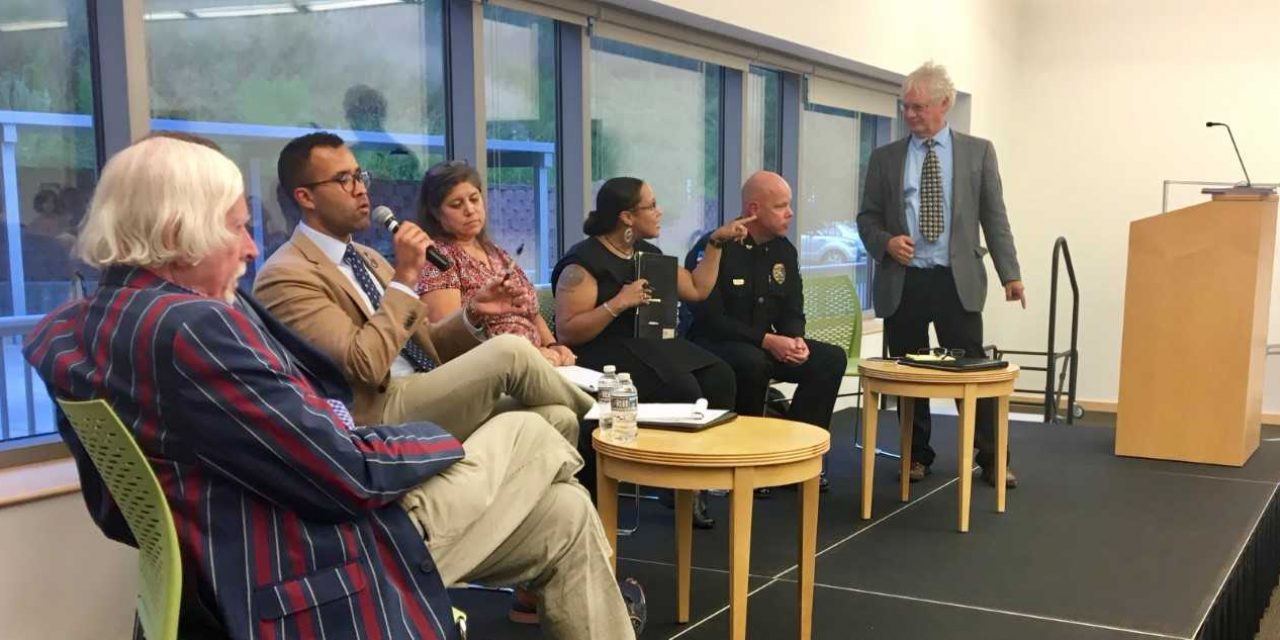
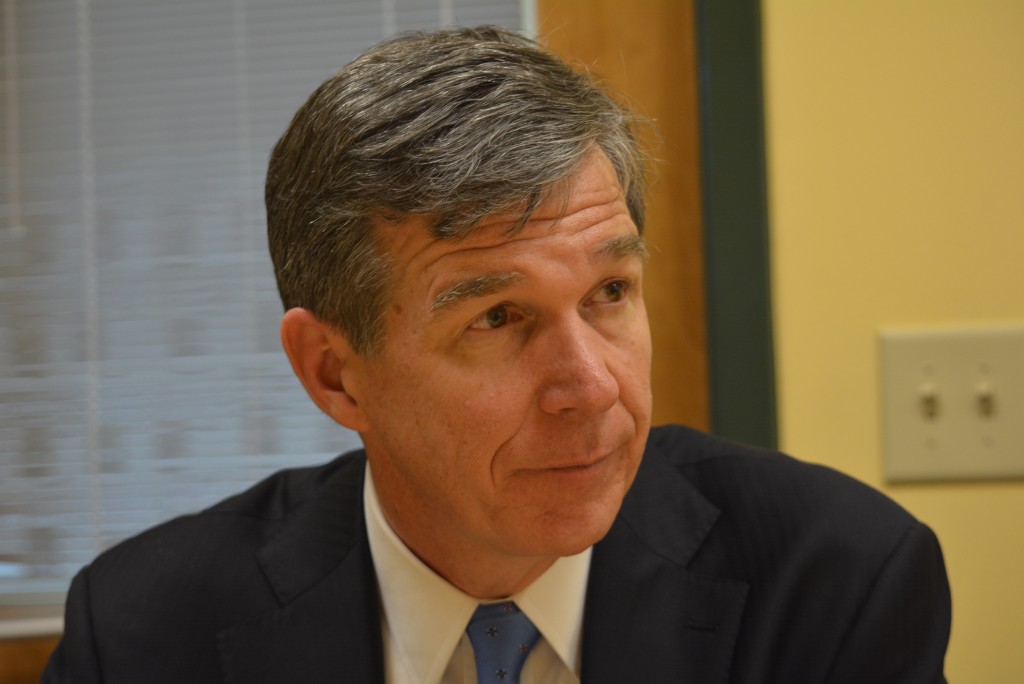
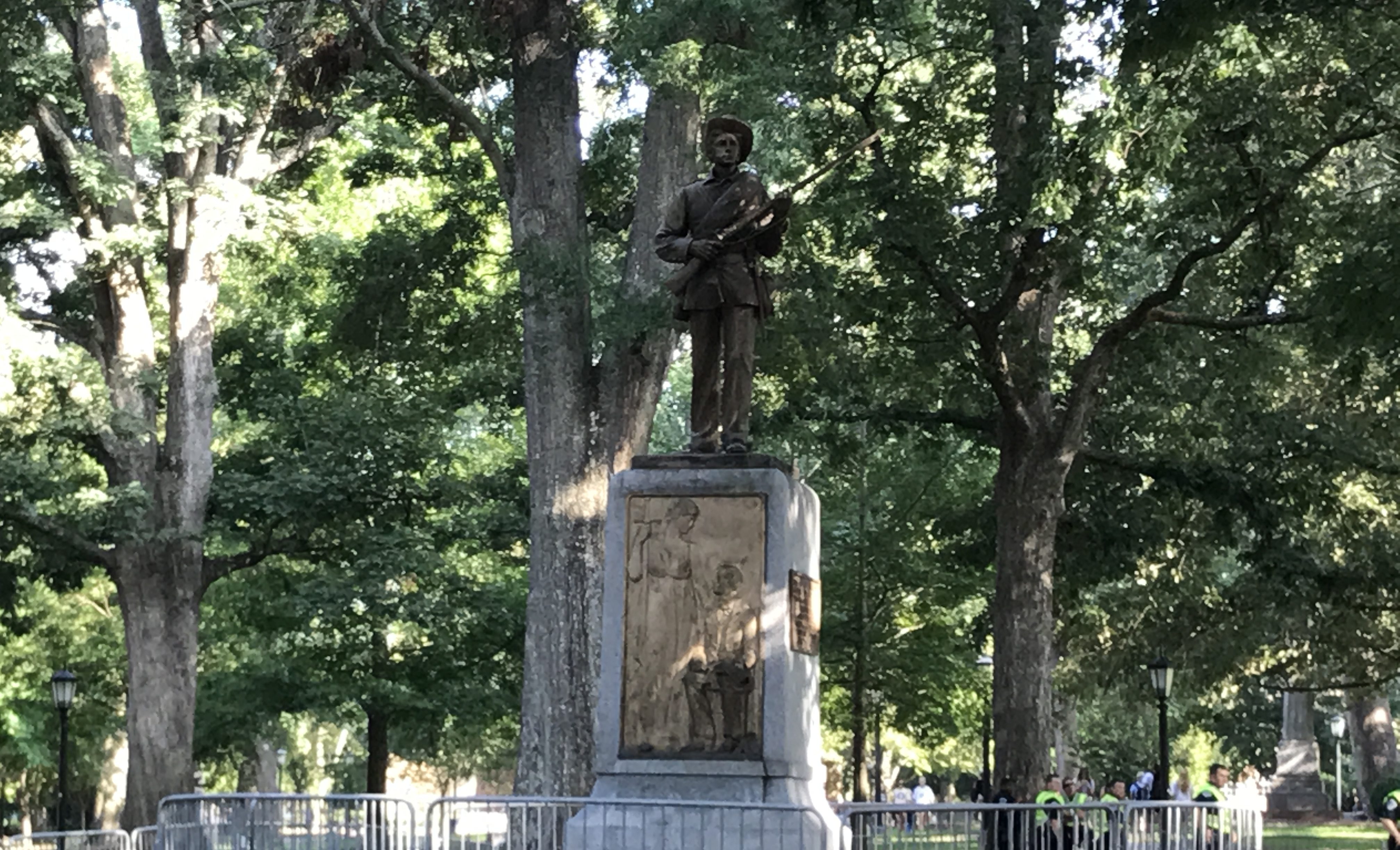
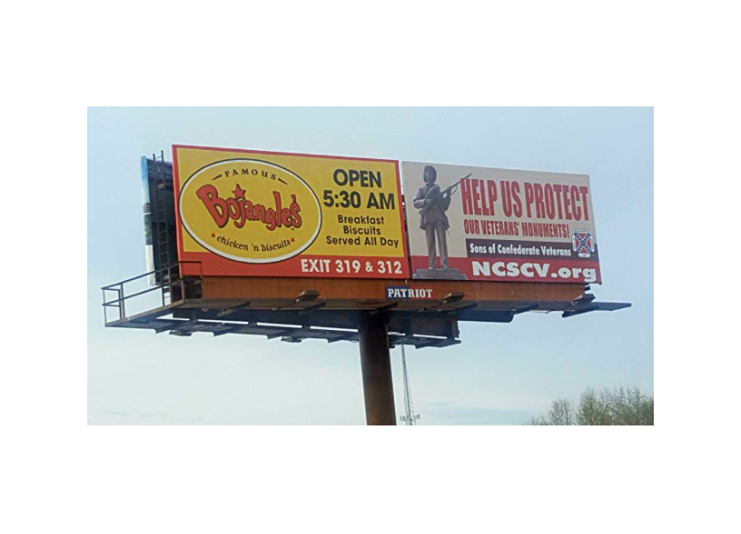
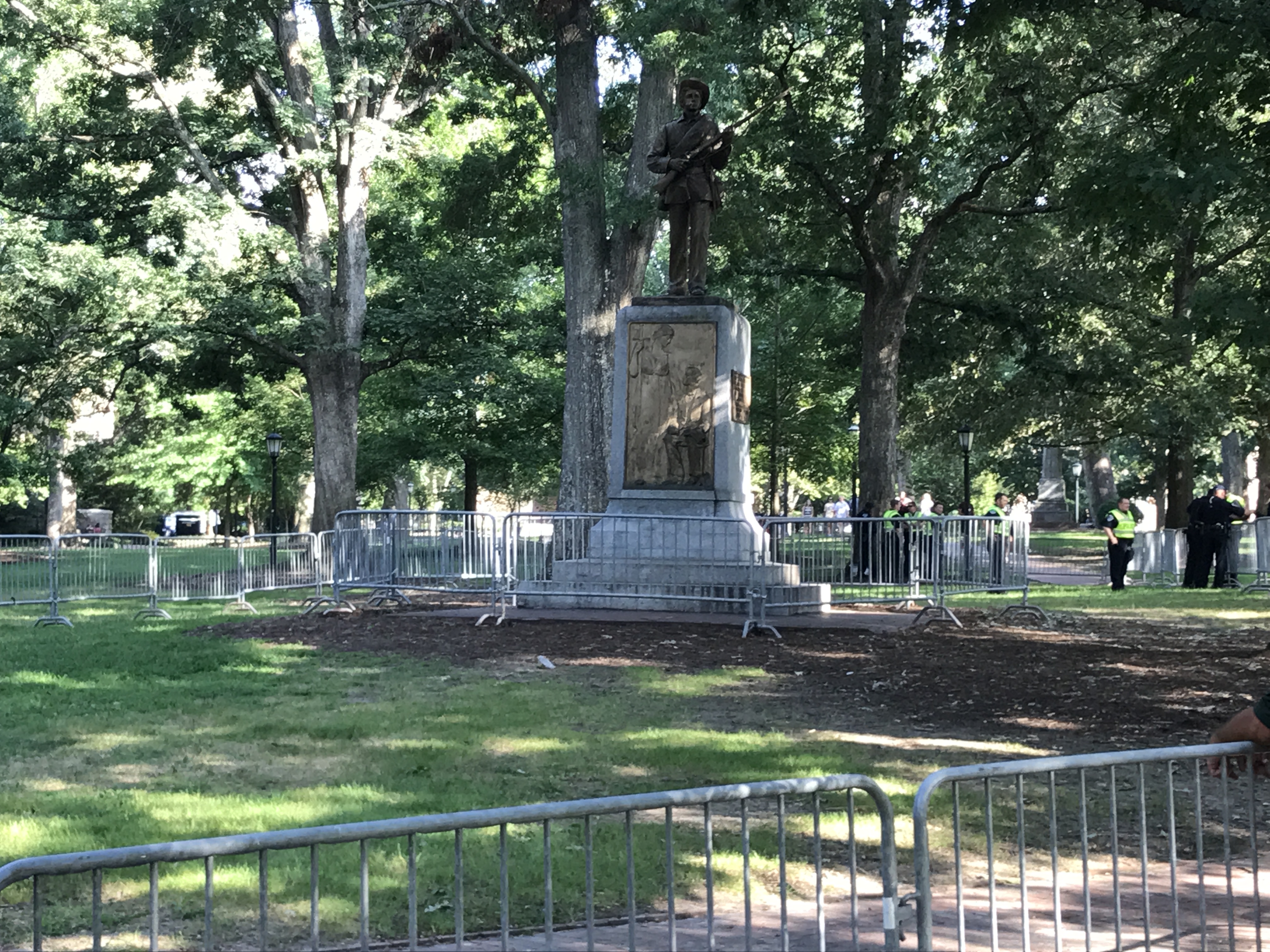

Comments on Chapelboro are moderated according to our Community Guidelines